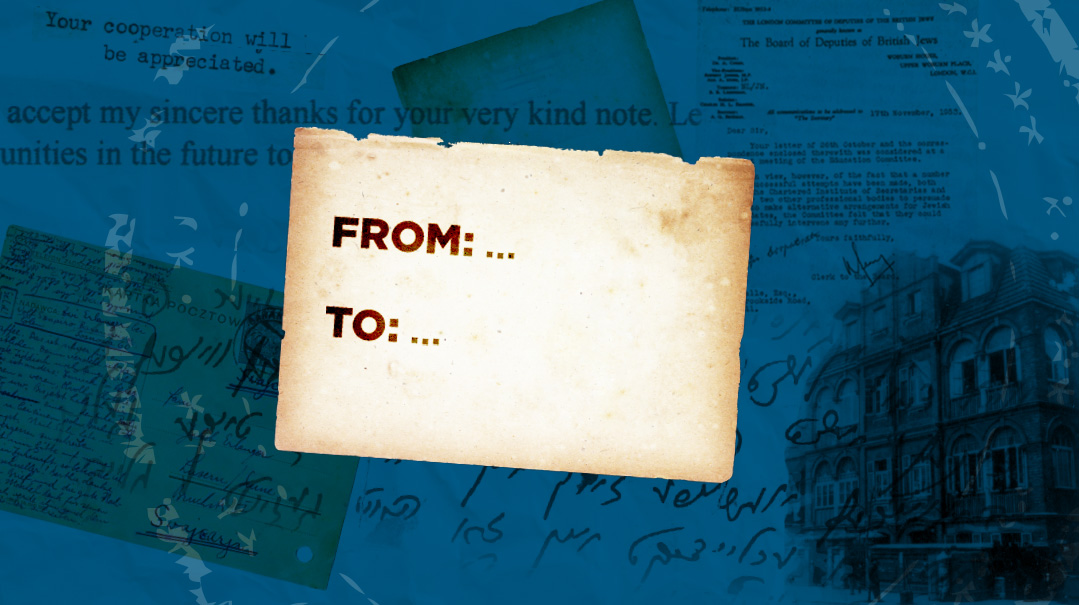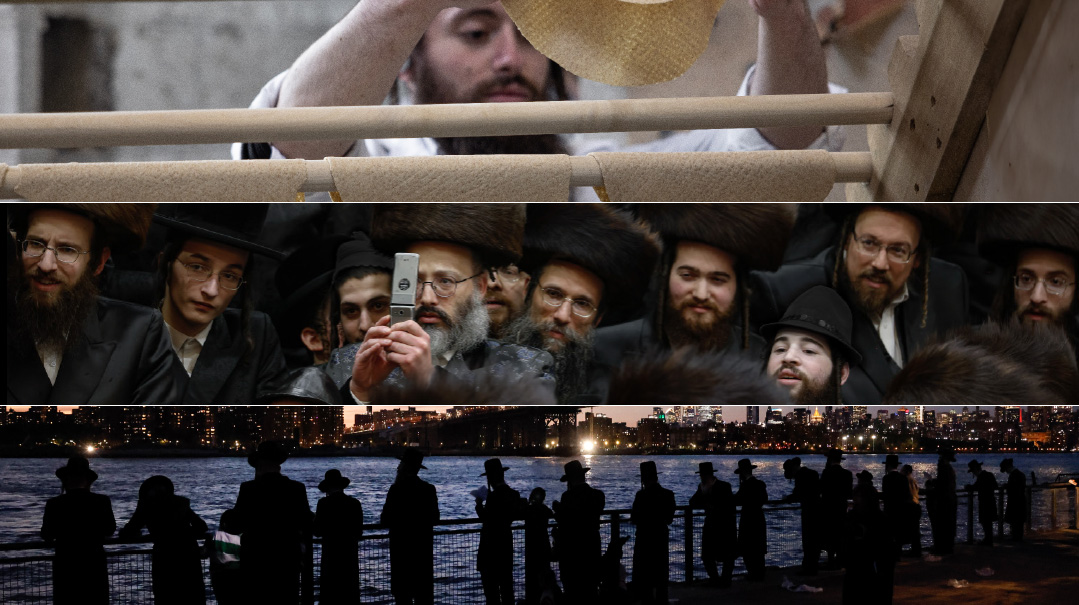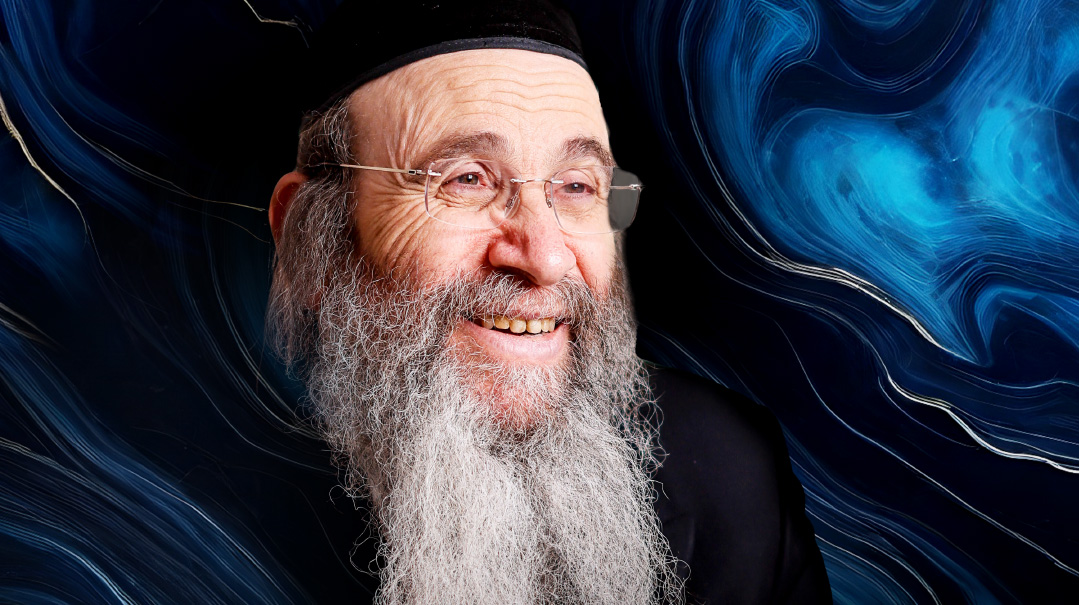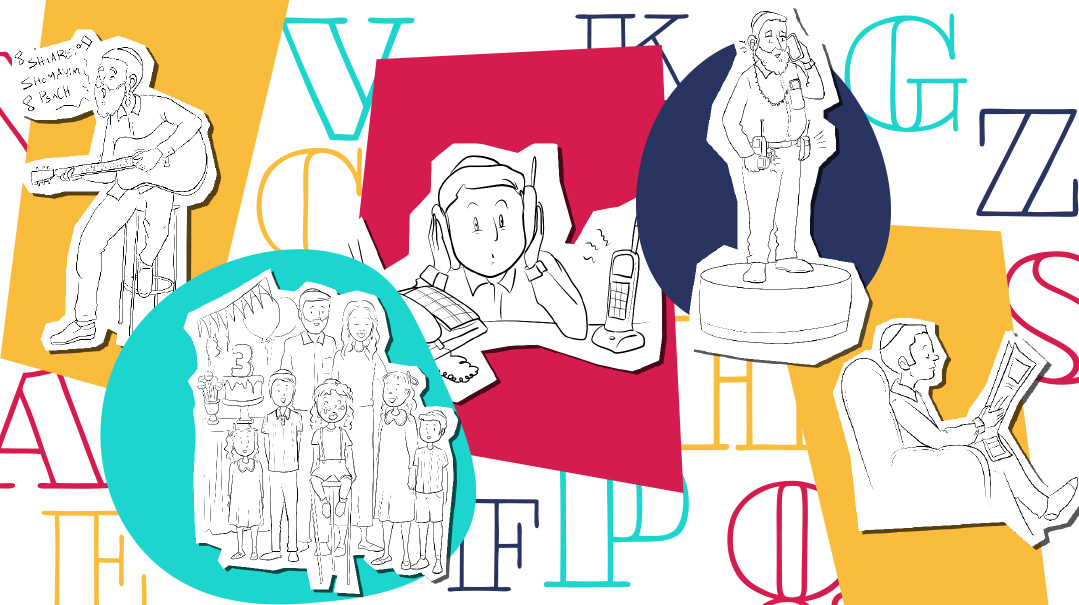Learning to Sing without You

For 18 days in 2014, Jews around the world hoped, prayed, and took on resolutions in the merit of three kidnapped Israeli yeshivah boys. On the 3rd of Tammuz, they learned their worst fears had come to pass.
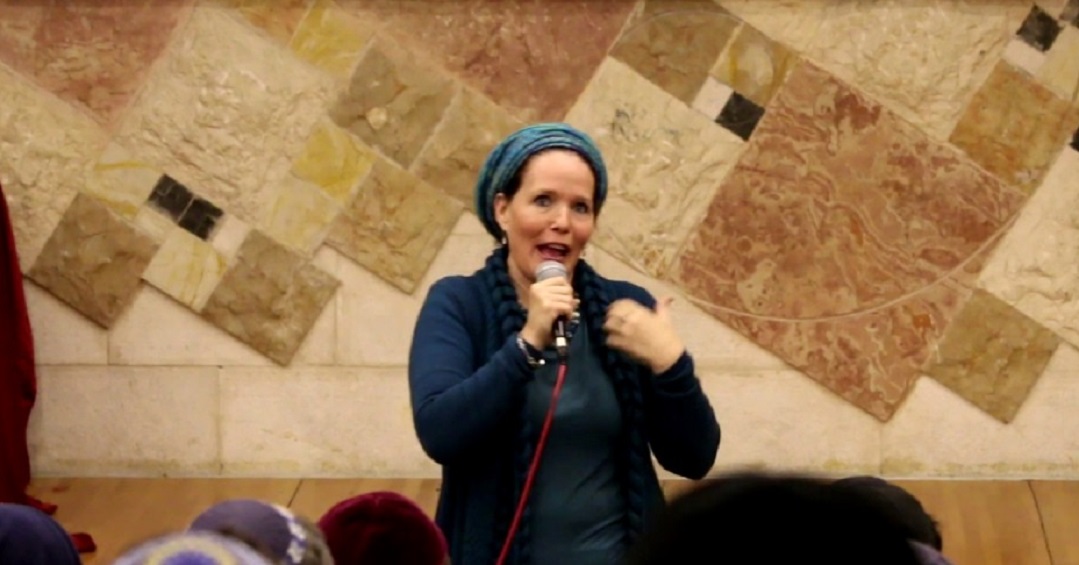
A
s the yahrtzeit of that triple burial approaches, after a year punctuated by additional tragedy, the Jewish People are somehow still feeling the uplifting spiritual messages of those desperate days. “It’s still an eit ratzon,” says Rachelle Fraenkel, whose unflinching faith in the face of a parent’s worst nightmare gave strength to an entire nation
Israel is no stranger to tragedy, and in the past year alone this beleaguered country has buried over a dozen civilians killed in horrifying terrorist attacks. So what was it about Gil-Ad Shaer, Naftali Fraenkel, and Eyal Yifrach Hy”d, three teenage yeshivah boys kidnapped and murdered while trying to get home for Shabbos, that has left such an indelible mark on our national consciousness and created such a wide-ranging environment of chesed and goodwill even a year later? What motivated entire kehillos to take on additional resolutions, and continues to inspire individuals to make more spiritual commitments in the boys’ memories as their first yahrtzeit approaches?
“I really don’t understand it either,” says Naftali’s mother Mrs. Rachelle (Racheli) Fraenkel, who together with mothers Bat-Galim Shaer and Iris Yifrach, inspired the Jewish world last summer with their unflinching faith and words of strength and hope in the face of a parent’s worst nightmare. She mentions how a few months later at that very same Gush Etzion bus stop where the boys were abducted, a terrorist murdered 26-year-old Dalia Lemkus — a South African native who lived with her family in Tekoa — and few people remember her name.

“If these same terrorists had gone out with their automatic weapons and sprayed people, no one would have remembered the names the next day,” she explains in a wide-ranging and deeply honest conversation on the eve of the boys’ first yahrtzeit, to be commemorated on their burial date of 3 Tammuz. “Because most of us, with our normal internal defenses, just can’t internalize all the tragedy around us, so we just listen, shake our heads, and move on. But once in a while something happens where there’s a window of hope. For 18 days the country lived with the hope, however slight, that ‘we’re going to find them, we’re going to rescue them, we’re going to bring them back to their families.’ I believe that as a nation, we had 18 days to hope, to feel, to let our defenses down and let ourselves into a place where we rarely dare to go. And when you’re in that place you just want to daven and to connect.”
Rachelle Fraenkel, the youngest child of American-Israelis Dr. Milon (Shmuel) and Frieda Sprecher, is a dual American-Israeli citizen, as are her children aged 5 to 20. When the boys went missing, her perfect English coupled with both a profound message of emunah and a gifted oratory skill — she’s a long-time instructor in Jewish studies for women — thrust her into the position of de facto spokesperson for the families of all three boys. She instantly morphed from a private person — a teacher and mother raising her family in the sprawling town of Nof Ayalon — into an international heroine, whose face became as familiar around the world as the pictures of Naftali, Gil-Ad, and Eyal.
An unwitting heroine, though. When the story first broke, the parents of the three missing teens shied away from an oft-suspect media. Slowly, though, they learned that all those microphones being thrust in their faces could also be their allies. How does a family transform itself to a new reality when one minute they’re an anonymous household waiting for their son to come home and the next minute they’ve become lead characters in an international drama?
Mrs. Fraenkel reviews the events of that Thursday night of June 12/15 Sivan, when their lives would be changed forever. “It was the end of the school year and the boys had gone on a field trip that day. Naftali texted us at 9 p.m. that he was coming home, but we didn’t see it until an hour later. It was already after 10 when we texted back, ‘Great, see you in the morning,’ and, knowing he’s a responsible kid, we went to sleep. Three weeks later, when all the pieces of the puzzle fell into place, we would realize that he’d never even seen our text. He was already dead.
“The next thing we know, it’s 3:30 in the morning and the police are banging on our door. They were sent by Gil-Ad’s family, who began frantically calling his friends when, hours after his last phone call, he never came home. His friends said they saw him leave with Naftali, as we’re in the same general area — we live in Nof Ayalon and the Shaers live in Talmon. The thought was that the two boys probably hitched a ride to our area together, and then since it was late, Gil-Ad might have decided to stay the night in our house. So we thought we’d go upstairs and find Naftali and Gil-Ad safely in bed, but the room was empty. When we rang his phone and no one answered, we knew we were in deep trouble.”
Eyal, Gil-Ad, and Naftali were waiting outside Alon Shvut around 10:15, looking to catch a ride heading down toward Beit Shemesh and from there to locations in central Israel where each of them lived. Gil-Ad and Naftali, both 16, were school friends learning in Yeshivat Mekor Chaim in Kfar Etzion; Eyal, 18, was a talmid in Yeshivat Shavei Chevron and was also making his way home for Shabbos.
The three immediately realized they were in trouble, and at that point Gil-Ad made the now-famous phone call to the emergency police number, whispering “I’ve been kidnapped.” His cell phone, as was soon publicized before a gag order clamped down on the information, was left open, and the police hotline automatically recorded what happened next: shouts of “Put down your head!” in Arabic-accented Hebrew, muffled gunshots from a silencer, two exclamations of “Ay, ay,” and more Arabic jeering could be heard to the background of a political interview on Israeli radio.
Later that night, Palestinian security sources found a torched Hyundai with Israeli license plates a village near Chevron. But as long as there were no bodies found, the security forces worked on the assumption that the boys were alive and being held somewhere in the area.
For the next three weeks, the IDF went on a combined offensive/search operation, clearing out and detaining Hamas operatives in villages all over Judea and Samaria, looking for clues and taking advantage of a security cleanup at the same time. The bodies of the three boys were finally found on June 30 in a shallow grave outside the village of Halhoul.
But on that first Friday morning, it was all still a frightening mystery. “I was thinking in the direction of a car accident, but then everything unraveled very quickly,” Mrs. Fraenkel recalls of that first harrowing predawn news. “A few hours later we were already told that the last signals of their phone came from the Chevron area. The security forces appraised us of everything they knew: The burnt car led military intelligence to discover who ordered the theft of the car and the names of the terrorists.
“We knew everything except where the boys were being kept, and the army was going on the assumption that as long as no bodies were found, one or all could still be alive. In fact, what we later discovered was that the original plan was to keep them alive, and there were places arranged to hide them and feed them. During the IDF raids over the next few weeks those places were exposed. Perhaps the terrorists panicked, perhaps they changed their minds at the last minute. But what we learned at the end was that, b’chasdei Hashem, the boys were killed right away without being tortured. Today we know that there were over 20 Hamas people in Chevron that were involved, and another group of Hamas operatives in Gaza who sent the money for the operation.”
By Friday morning, an IDF support team was stationed in the homes of each of the three families — the Fraenkels, the Shaers in Talmon, and the Yifrachs in Elad.
“These teams represent the collective wisdom of the country and they understood that a family going through this ordeal needs someone to hold their hand. I can’t stress enough how much I appreciated them,” says Rachelle Fraenkel.
The team members slept in neighbors’ homes in order not to disturb the families’ privacy or undermine parental authority. They were also the only news source for the families, who made a decision not to be connected to any media — radio, newspapers, or Internet.
“There were so many rumors flying around, and we knew that at every point in the story, these teams were keeping us totally in the loop in the most reliable way,” she says.
Given all the clues, did she really think her son and the others were still alive?
“Well, we knew about the gunshots, but maybe they killed two and left one? Or maybe they were all alive but wounded? We were working on the assumption that they were alive, and for me as a mother it didn’t matter if it was a 40 percent chance or a 1 percent chance. Even a 1 percent chance means hope, and that’s where we put ourselves.”
And that’s not denial, she explains. Naftali’s father Avi Fraenkel said at the funeral that he’d been walking around for days with a folded eulogy in his pocket, preparing for the worst as a sort of psychological protection. But during those 18 days of limbo, Racheli chose to stay on the side of hope. “Of course, I considered other things, but at that point I had to stay focused on the positive. I could always fall apart later.”
Meanwhile, the support team helped them stay grounded. “We developed a very special relationship with the team, although some of them came from totally divergent backgrounds,” Racheli continues. “One person who was a tremendous support knows very little about Yiddishkeit, but he’s a tzaddik. He’s a psychologist, and anytime something like this happens, he leaves his job and his family and is totally devoted around the clock to families who need him more.
“A few days later, when the recording of Gil-Ad’s phone call to the police had been restored and they asked us if we wanted to listen to it, I went over to him for emotional preparation. I knew I would listen to it, but I needed help preparing for what I might hear. For me it was a question of managing my energies. Would it drain me, would it put me under? I was frightened, because I didn’t know exactly what the tape contained, and what it would do to me if I listened. So I asked him to prepare me. He said, ‘Okay, Racheli, what are you afraid of?’ I said I was afraid I might fall apart. ‘Well, so, you’ll fall apart, then what?’ Such simple words but so profound.
“ ‘I guess I’ll collect myself and get back up,’ I told him.
“I learned that sometimes it’s the fear that’s worse than actually living through the reality. Long after the burial, after the shivah, I got a call before Rosh Hashanah from Chagit Rein, the mother of Benaya Rein, who was killed in Lebanon in 2006. [The week before his death, Benaya saved an entire unit of IDF soldiers whom his commander misconstrued as Hezbollah terrorists. When he was ordered to fire on them, his instinct told him to refuse the orders.] Chagit called to warn me, to comfort me, to let me know that the fear of the upcoming Yamim Tovim without him is worse than the holidays themselves. It’s true — sometimes the fear of how you’ll cope is worse than the event itself. And even if you do fall apart, you’ll collect yourself and get up.”
The team initially advised the immediate families not to speak to the media, based on many past negative experiences where family members got emotionally entangled, said things without proper consideration or preparation and then regretted their statements.
“But 48 hours into the story, on Sunday morning, we just felt we had to personally thank the nation,” says Racheli. “In those 48 hours, people turned themselves upside down and inside out — soldiers, young people, parents, rabbis, everyone — with prayers, Erev Shabbat commitments in the zechut of our boys, political involvement for those in that sector, and so many resolutions and acts of unconditional kindness. Now, it wasn’t exactly like we had to organize a press conference. We had 40 press photographers and as many journalists camped outside our house waiting for any crumb, so we let them know we were ready to make a statement.”
Was it planned that the women would step up to the plate, that it would be the mothers who would talk to the hearts of the nation?
“Well, at first it was just a matter of who felt more comfortable in front of the camera,” she says. Both Bat-Galim Shaer and Iris Yifrach are thoughtful, articulate women, and they felt more confident than their husbands taking the mike, and Racheli’s husband Avi, a lawyer for the police force, preferred, at least in the beginning, to keep a lower profile.
“But over time it worked in our favor and it made an impression on the international community. We were mothers talking about the kidnapping of our children and that crosses all party and political lines.”
The women, who hadn’t even known each other before, became an international united front, and Racheli Fraenkel found herself leading the agenda. From a now-famous, accidentally filmed conversation with youngsters at the Kosel encouraging them to continue to pray but “not to assume that Hashem is our employee” (“There was so much prayer, yet I felt it important to emphasize that tefillah is not a cash machine”), to the widely publicized interview with David Horowitz of the Times of Israel where she said parents should never be the ones making the decisions when it comes to hostage negotiations (“I might one day be screaming from a rooftop to rescue my son at all costs, but I’m telling you now, when you see that lady screaming from the rooftop, don’t listen to her”), to her plea for humanitarian intervention at the UN Human Rights Council in Geneva, she became a wall of faith and inspiration.
Did she ever collapse? Was the cool, collected face presented to the camera the same face that hit the pillow at night?
“I will tell you that during those days, I was very, very focused, and I even asked myself, ‘Racheli, do you not love your child enough to fall apart?’
“But I want to explain how we were very mission-oriented and very focused. It actually surprised me that I could have much more control than I expected over my thoughts and where I’d let my mind wander. There’s a price to pay for negative thoughts — Are the boys alive? Are they together? Are they injured? Are they being fed? Are they being tortured? — any time these thoughts overtook me, my energy just drained out. Finished. The reaction to these negative thoughts was so immediate and so debilitating that it forced me to control them so that I could continue to function and care for my family.”
W
hile Jews around the world were first praying for, and then mourning, the three teens, in the security arena another battlefront had opened. During the IDF raids on Hamas cells in Judea and Samaria in conjunction with the search for the boys, Hamas operators in Gaza decided to jump into the fray with a barrage of missile attacks on citizens in southern Israel. Following the continuous indiscriminate rocket fire on Israeli civilians, the IDF initiated Operation Protective Edge, which — possibly due to information gleaned from the mass arrests of Hamas operatives — led to the discovery of a sophisticated, deadly network of hundreds of miles of tunnels dug from Gaza and reaching under the ground of Israeli towns in the south.
Later, the two kidnapper-murderers, Marwan Kawasmeh and Amar Abu-Isa, were tracked down after hiding for weeks in a sewer and killed in a shootout in Chevron; the third partner, Hussam Kawasmeh, who was to be hostages’ jailor according to the original plan, was given multiple life sentences.
There is a certain narrative that Israelis were clinging to last summer, drawing a direct connection between the abduction and the subsequent discovery of the tunnels, which surely saved hundreds, if not thousands of Jewish lives. Is this a comfort for the families, a sort of trade-off of unblemished souls who were taken in order to ensure the survival of so many more?
“I never assumed to know how HaKadosh Baruch Hu works His world, or that because of the boys, they found the tunnels,” Racheli emphasizes. “But there is another narrative, one I saw with my own eyes, and that’s that since we were about to experience a difficult war with missiles and casualties, the solidarity, the achdut that was created and the zechuyot that were generated over the previous 18 days were crucial for surviving that onslaught. But I’m not running after answers. That’s not our job.”
What is her job, says Racheli, is to move forward, finding both a place for the searing pain and for the joy in the blessings she has. After the shivah tent folded up and the thousands of supporters returned home, it was time to make a new kind of space. “You cry when you cry, you laugh when you laugh, you give yourself permission,” says Racheli. “Over this year I’ve met many people who have experienced loss. Some say you’re not allowed to cry because you have to be strong for the people around you. And some say you’re not allowed to laugh because it would be a betrayal of your sorrow. And others say to put on a mask, to smile for the family and the world, even as you’re dying inside.
“Now, I give those mask-wearers a lot of credit, because it lets them function. But personally, it’s not my thing or my husband’s thing to walk around with a mask. So my choice, if I don’t want the mask on my face, is to cry when I cry, laugh when I laugh, to give my children permission to be happy and also to sometimes be sad. To paraphrase a special author and educator Parker Palmer, I can feel sorrow without becoming sorrow, and I can feel pain without becoming pain. In my inner landscape there are so many other colors and powers and blessings. It would be sheer ingratitude if I’d take this bucket of black paint and spill it all over my life.
“A few months ago my six-year-old daughter Naama saw me putting my makeup case in my bag for work. ‘Ima,’ she said innocently, ‘do you still only put on your makeup at work so that you can cry on the way?’
“I was happy she said that, because I wouldn’t want her to think it was business as usual. ‘You know, Naama,’ I told her, ‘it’s not that every day I cry the whole way, but I reserve the right to cry.’ ”
Kikar Rabin in Tel Aviv — called Kikar Malchei Yisrael until Prime Minister Rabin was assassinated there in a leftist peace rally in 1995 — has always been a venue for radical, partisan, divisive protests. But last year, less than 20 hours before the boys’ bodies were discovered, close to 100,000 people of all stripes gathered together in that square — so often marked by conflict and contention — in massive unity and prayer rally-turned-kumzitz for the salvation of the three kidnapped teens. A year later, people still feel the spiritual potency of a unified Klal Yisrael joined together in Heaven-shaking tefillah.
But Israelis and Jews around the world have witnessed much suffering this year — Arab vehicles crashing into crowded light-rail and bus stops, the horrifying Har Nof massacre, the shooting spree in a Paris kosher supermarket, the freak fire that took the lives of the Sassoon children — and Rachelle Fraenkel was sure the axiom that “new tragedies make people forget previous tragedies” would apply here as well. So she says she’s amazed that so many months later, people still stop her on the street, still recognize her and still hold last summer’s moments in their hearts.
“I never expected to be a celebrity. I thought people would forget me after a few months,” she admits. She mentioned how, when the family was traveling to the US last winter, she noticed that the stern-faced official at the Israeli passport control was sniffling through a package of tissues. When she got up to the window, she saw tears rolling down the woman’s cheeks.
“You don’t really have a cold, do you?” Racheli asked her gently.
And the woman answered, “I’m really sorry. But it’s just that you lived in our home throughout the summer.”
Because so much time elapsed between the deaths and discovery of the bodies, the halachic determination is that the first yahrtzeit is commemorated on the day of the burials, which falls out this Shabbos, 3 Tammuz. For 18 days last year, political parties put aside their internal squabbles, people let others cut in line, there was a courteous no-pushing policy on public transportation, and people would greet each other with empathy and kindness. As a year passes, can this trend to a nicer, softer public be maintained? Will the memories of Gil-Ad, Naftali, and Eyal continue to evoke a certain unexplained inspiration?
Racheli’s personal experiences might answer that question. On a speaking engagement in Scottsdale, Arizona this past winter, Racheli asked the rabbi, whose congregants spearheaded a “thousand mitzvah” campaign during the crisis last summer for the merit of the boys, if his congregants hadn’t lost their momentum over the months. The rabbi surprised her when he told her they’re more motivated than ever.
“It’s a huge responsibility,” says Racheli. “This is an eit ratzon and we don’t want to miss out on it. I’m not saying my davening this morning was like Ne’ilah on Yom Kippur, but we have to make the most of this energy. There was this incredible momentum I discovered in the center where I spoke. One man pledged, ‘I’ll put on tefillin once a week in the boys’ memory.’ Another couple said, ‘We’ll kasher our kitchen.’ One woman took me aside and whispered, ‘I didn’t want to say this in public, but I’ve decided to date only Jews.’ ”
A
s Naftali’s mother, did Racheli have some privileged information, some hint that her very regular 16-year-old had perhaps reached an exceptionally high level in his limited years, which managed to engender such intense spirituality and unity among a fractured nation? “For Hashem,” she says thoughtfully, a bit uneasy with a question that hints at concepts not ours to determine, “it doesn’t matter if a neshamah is 16 or 60, and what do we understand about the levels of neshamos? But we do see certain things after the fact, certain ‘messages,’ and acts of Divine chesed that bring us a measure of comfort.
“We hate living on rumors, but one rumor I can tell you is true. When the bodies were exhumed, although they had been in the ground for three weeks, there was none of the disintegration that should have taken place over that period of time.”
And then there was the timing. According to intelligence experts, the massacre was over within three minutes — the boys were killed immediately and at least in Naftali’s case, probably felt no pain. There was one bullet, and it entered and exited clean.
Eyal Yifrach’s family had their own personal miracle, a true chesed for them. For some reason, he left his journal — full of his innermost spiritual yearnings, Torah chiddushim, and private thoughts — right on an open, public shtender in the beis medrash while he left for Shabbos. His family was bequeathed a legacy — a notebook brimming with the strivings of his soul.
The Fraenkels, though, weren’t so lucky. It was the last day of school, and nearly all Naftali’s worldly possessions were in the huge knapsack he was carrying on his back after clearing out his dorm room. “Everything was burned in the car, even his tefillin. There’s not a zecher of anything,” says his mother. “So we have very few possessions left.”
One thing that did remain is Naftali’s guitar. He was a self-taught, highly talented musician. “The night of the levayah, my cousin was going to Poland with a group and she took the guitar,” Racheli says. “They sat in the concentration camps and sang as she played that guitar. Afterward when they came back to Jerusalem and had a ceremony at the Kotel, she told them with tears in her eyes, ‘The guitar I’ve been playing the whole time is Naftali’s guitar.’ ”
Last year on the 3rd of Tammuz, Rachelle Fraenkel bid a final farewell to her slain son. “We will have to learn to sing without you,” she said as she stood in front of his flag-draped body.
And they are. “The guitar is back in our house and my girls are trying to learn how to play it. To be honest, it just doesn’t play like it played for Naftali. But my cousin felt bad so she got us a keyboard. ‘B’ezrat Hashem,’ she said, ‘your house will be filled with music again.’ ”
(Originally featured in Mishpacha Issue 564)
Oops! We could not locate your form.









